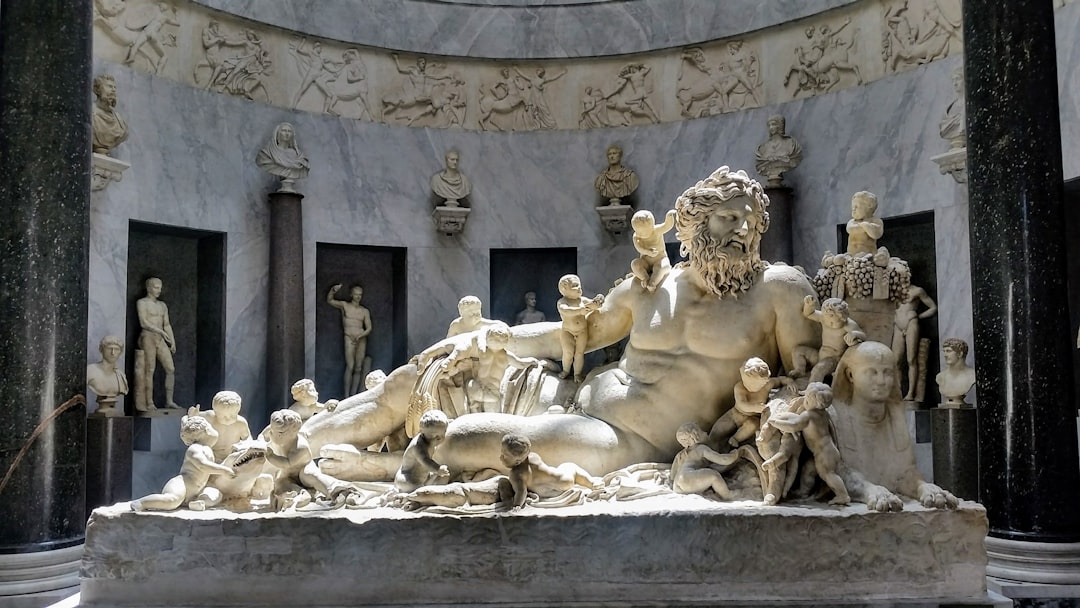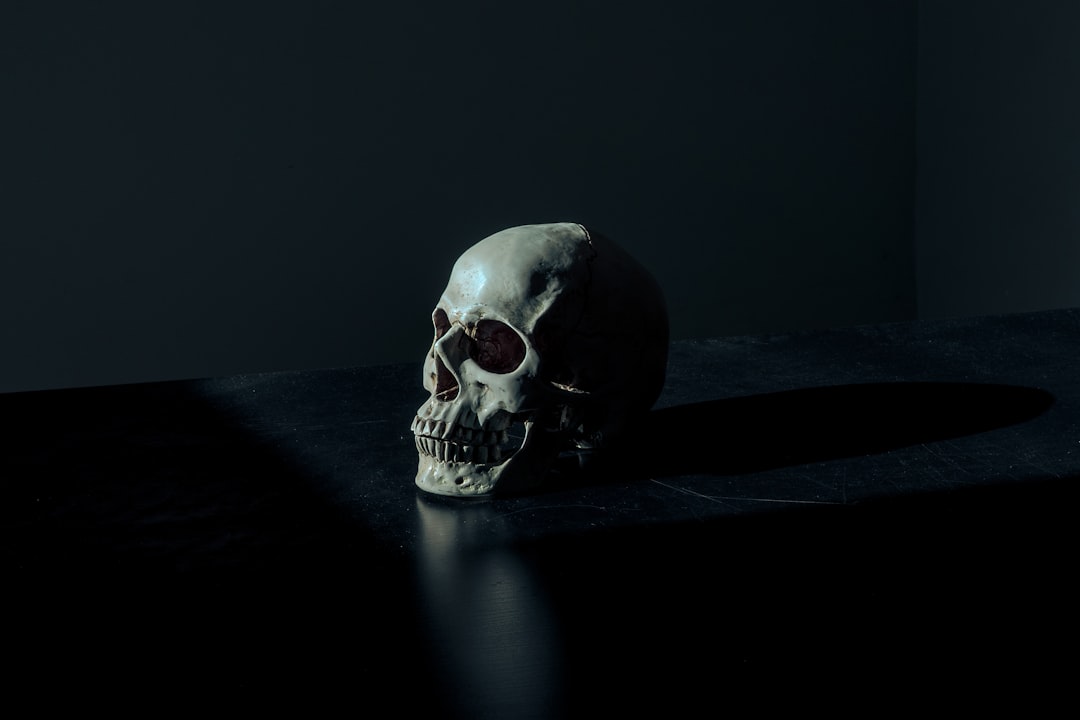Many of the planets, as with many of the months, take their name from Roman gods and leaders. ‘July’, for example, is a shortening of ‘Julius’, as in Julius Caesar. Similarly, ‘August’ is named in honor of Augustus Caesar (also known as Octavian) who became emperor of ancient Rome, after the assassination of Julius Caesar in 44 BCE.
We’ve also been landed with the Roman names for the majority of the planets in our solar system too. The Greeks are really the ones who deserve the credit for creating these gods (and their planetary associations). The Romans more or less copied the Greek gods into their own mythology but changed the names.
They didn’t even change all the names. ‘Apollo’, for example, is the same name in both Greek and Roman mythology. Their personalities and their dominions (be it the winds, the seas, war, healing, poetry and so on) were also practically copied and pasted over.
It’s fairly easy to recognize the Roman gods who were associated with each planet (because most use the same name for both the planet and the god), but do you know who the OGs (original gods) from ancient Greece are?
1. Sun
Initially, the Greek god of the sun was ‘Helios’ but, later, ‘Apollo’ became the sun god. Apollo is the son of Zeus and Leto. It’s no surprise he was connected with the sun, he was the golden boy of the gods (literally and metaphorically). He was seen as the ideal form of an athletic young man. He was also viewed as the protector of children who could help them with their health and education. If you wanted your child to grow big and strong, Apollo was the god you would pray to. He was attributed with the invention of archery (and his sister Artemis), and he is usually depicted with a golden bow and silver arrows.
2. Mercury
Hermes was the Greek god associated with the planet Mercury. One of the best ways to understand Hermes is to look at the story of his birth. He was walking and talking (fluently) within minutes of his birth. He travelled hundreds of miles on the first day of his life, herding cattle (which belonged to Apollo, oh dear!) back to the cave where his mother, Maia, was waiting for him, completely dumbfounded.
Hermes was physically and mentally quick. When Apollo confronted him about stealing and butchering his cattle, Hermes produced a lyre (a stringed instrument) which he had made from the guts of the cattle. He sat beside Apollo, still on his first day of birth, teaching him about chords and harmonies. After explaining his need for the cattle, and offering Apollo the lyre, all was forgiven. He soon claimed the final of the twelve seats on Mount Olympus.
3. Venus
Aphrodite was the god of Venus. She is also associated with beauty, love, passion, pleasure and procreation. Her birth was not the beautiful event you might imagine. After Ouranus (we’ll get to him later) was castrated by his son Cronus, Cronus flung his private parts into the sea (classic Greek stuff!) and from the foam arose Aphrodite. Her birth really wasn’t out of the ordinary in being so extraordinary. She is actually a godly generation above that of Zeus. She is his aunt, in fact, but took Zeus’ side in the great war between the Olympian gods and the Titans, and earned herself a top spot in Olympus (and a planet which we call by her Roman counterpart too).
4. Earth
Gaia, one of the oldest of the Greek gods, is the god of the Earth. Gaia is one of the grandmother of Zeus and both the mother and the lover of the sky (Ouranus). She didn’t have many options in this early cosmic formation! From their union, all subsequent gods, titans, cyclopes and giants came. Their relationship didn’t end well as she fashioned a gray flint sickle which her son Cronus would use to castrate Ouranus (from which Aphrodite, above, was born). Gaia has survived not only through Roman mythology (where she was called ‘Terra’), but was also adopted in other religions such as Neopaganism. You will even see her referenced in lots of modern spiritual movements.
5. The Moon
Artemis, the twin sister of Apollo, was the goddess of the moon. As everything about Apollo was golden, everything about Artemis was silver. As Apollo was the sun, Artemis was the moon. She, like her brother, was credited with the invention of archery and she became goddess of hunting, the wilderness, wild animals and chastity. The last of these, chastity, was one of a long list of demands she made of Zeus (she had Zeus wrapped around her little finger). She wanted everything to be fair between herself and her brother and for no man to ever touch her. Those who tried regretted it. Only one man, her hunting partner Orion, ever won her heart but he was killed by either Gaia or Artemis herself by accident.
6. Mars
Ares is the Greek god of the planet Mars. He was the god of war. More specifically, the violent and brutal aspect of war. His sister, Athena, on the other hand, was the god of skill and tactics of war. Ares was all about mindless fighting and ‘mindless’ is the crucial word: he was not an intelligent god. It’s no surprise that Mars the ‘Red Planet’ became associated with the blind anger of the warring god Ares. All the gods were capable of anger and great wrong. They reflected the best and worst traits of humanity: a far cry from the Christian god of the New Testament!
7. Jupiter
Zeus, king of the gods, was attributed to the planet Jupiter. He was the child of Cronus and Rhea. As Cronus had deposed his father, Ouranus, Zeus’ destiny was to overthrow Cronus and his ‘Titans’. Today, a titan has positive connotations, but it was originally used as a pejorative term for the sons of Ouranus. After many years of battling, the Titans were finally defeated, Zeus punished all who had opposed him. Some he eventually forgave but he gave Cronus the humiliating punishment of swinging a scythe of time, mercilessly cutting through the ages. From this, he gained the name ‘Father Time’ and many of our words to do with time are associated with Cronus: ‘chronological’, ‘chronometer’, ‘synchronous’ and many more.
Zeus divided up responsibility over the world, primarily between the twelve gods of Mount Olympus. Zeus himself, while he was ultimately in charge of everything, was the god of the sky and thunder. His wife was Hera, but he had a wandering eye and bore children through other goddesses.
8. Saturn
‘Cronus’ was associated with the planet Saturn. We also see the god celebrated in one of our days of the week: Saturday (the day of Saturn). Why would the Greeks bestow such an honor onto Cronus, the defeated enemy of Zeus? The answer is they didn’t. When the Romans adopted Cronus into their religion as ‘Saturn’, they took a much more favorable view of him. As he was responsible for time, he could influence the beginnings and the ends of the seasons: this was therefore a god to take seriously.
Cronus was again rebranded as ‘the Angel of Death’ and the ‘Grim Reaper’ in the Judeo-Christian version of events. Things didn’t end quite so badly for Cronus then: he got a planet, a day of the week, reverence from the Romans and an important place in Judaism and Christianity.
9. Uranus
The Greek god ‘Uranus’ (or ‘Ouranus’) was the god of the planet Uranus. He was god of the sky and the wife of Gaia. Ouranus was one of the original gods (born shortly after the likes of ‘Cosmos’). He could be a merciless and cruel god and he paid his karmic debt when his son Cronus castrated him with a scythe. He was then carried down to the depths of the earth, where he is supposed to have buried all his powers. He vowed that if anyone was to access his great source of powers then his revenge would unfold. But Cronus wasn’t worried, who was ever going to be able to mine as far down as to retrieve the powers of Ouranus? Or, to give it its modern name, uranium.
10. Neptune

Poseidon, the god of the seas, was the god of Neptune. Poseidon was a brother of Zeus and it was a toss up between him and Hades as to who would be god of the seas and who would be god of the underworld. Neither Poseidon nor Hades really cared which their realm would be. They were fiercely competitive and they just wanted to be god of whichever one the other one wanted. When Zeus revealed that Poseidon was to be the god of the sea and Hades the god of the underworld, both celebrated in order to make the other think they had got the one they wanted.
Along with the sea, Poseidon was also given powers over storms, earthquakes and horses (horses were seen as part of the element of water). He is usually depicted holding a three-pronged fishing trident which he can use to stir up storms or hit the ground with to create earthquakes. Poseidon is a mixed character, like most of the gods (and the sea itself). He is usually mercilessly cruel to his enemies and devoutly loyal to his friends. It’s best to stay on the right side of Poseidon!
11. Pluto
Hades, the god of the underworld, was also the god of Pluto. When you read about Hades, you can see that up until the point of him inheriting the underworld, he showed a fair amount of character. Something in him seemed to change from the day Zeus allocated his brother, Poseidon, to be god of the sea and for him to be god of the underworld. Perhaps he just became the role he inhabited over time. Of course, as god of the underworld, he wouldn’t have much to do without mortals finding their way to him. It seems prudent that he should be awarded a planet in his name.
Hades was, in fact, the eldest son of Cronus and Rhea. Zeus was the youngest but in return for freeing them all from the belly of Cronus (who had eaten them all to ensure Ouranus’ curse that he will be deposed by his children didn’t come true) and defeating Cronus and his Titans, the right of primogeniture was overlooked. Perhaps Hades drew the short straw, ending up with deathly duties of god of the underworld, but at least he had secured his place in the solar system and being worshipped by the Greeks and, later, by the Romans under the name of ‘Pluto’. Every god loves to be worshipped.
When you’re next looking up at the stars, perhaps trying to find some of the ones on your personalized star map, don’t forget to look for the planets too. Yes, the Romans may have chosen their names but it was the Greeks who first conceived of them. The characters and symbols of these planetary gods have filtered down through cultures and civilisations to become a part of the lives we lead today.
Many of the words we use derive from these Greek gods and even our perception of the planets have been largely characterized by Greek mythology. In astrology, Mars is still seen as the planet of action, energy and is the ruler of our animal instincts. Don’t forget the numerous constellations (which you can see on your star map) which have their roots in Greek mythology. Sagittarius, for example, is a centaur who was killed by Hercules. Hercules is also supposed to have bitten the goddess Hera when he was breastfeeding and the milk which spilt out became the Milky Way. Science might explain it differently nowadays but the power of these myths go on.










